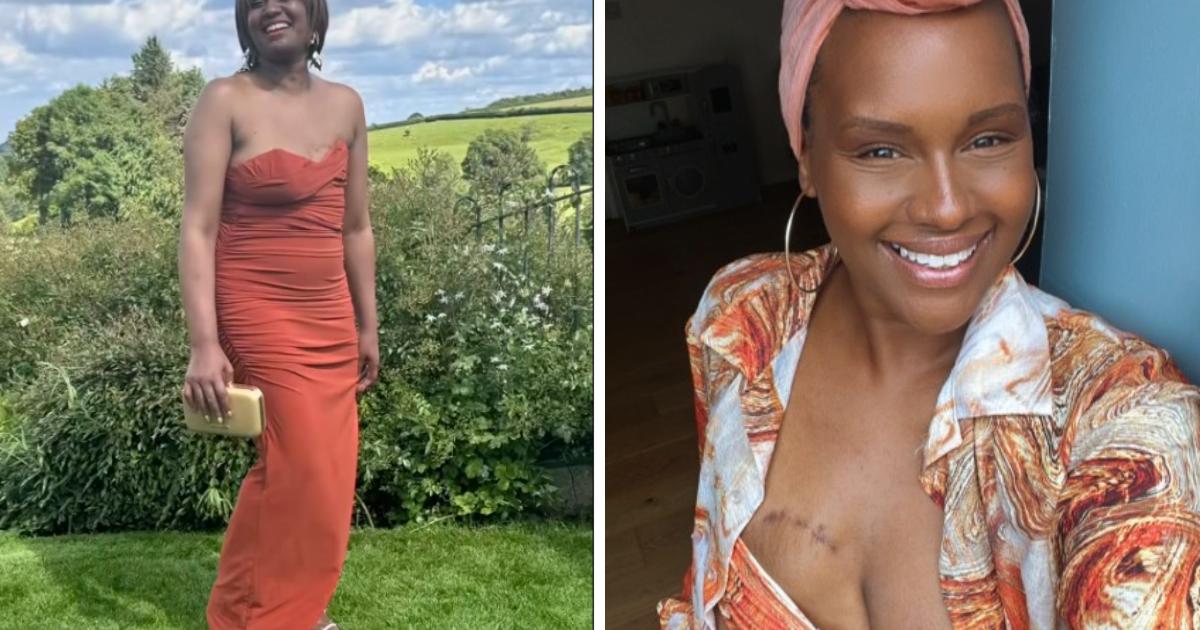Rhakima Kahn, a 38-year-old senior healthcare support worker from Emersons Green, is advocating for increased awareness among Black, Asian, and other minoritised ethnic communities about breast cancer.
Her campaign comes after her own diagnosis on Valentine’s Day 2022 when she discovered a lump near her sternum.
Despite her experience in healthcare, Rhakima, known as Kimi, faced challenges in receiving treatment, eventually undergoing a mastectomy, chemotherapy and radiotherapy.
Now, three years on, the mother-of-two is using her story to educate others, particularly from ethnically minoritised backgrounds, about recognising symptoms and seeking medical advice promptly.
Kimi highlighted the cultural barriers that can prevent Black women from discussing health issues, stating: “Being a Black woman, we don’t have the same access to education about our bodies.
“We’re taught not to speak about it, not just ill health but anything to do with our bodies.
“It puts us at a huge disadvantage.
“We are less likely to check our breasts or recognise changes in our bodies that we need to get checked out.”
Clinical lead for Breast Services at North Bristol NHS Trust, Michelle Mullan, supported Kimi’s campaign, acknowledging the cultural reluctance to discuss health matters.
She said: “Thanks to Kimi for highlighting this important issue for Black women and those from ethnically minoritised global majority backgrounds.”
Kimi has been sharing her story on social media and reaching out to churches and community groups in South Gloucestershire and Bristol to speak directly to Black women about the importance of regular breast checks and seeking medical advice when necessary.
She said: “As a Black woman, we are not allowed to be ill.
“We are brought up not to show weakness and it is something we pass down to our daughters.
“I don’t want my daughter to grow up and feel she, as a Black woman, cannot speak about her health.”
Despite receiving support from many, Kimi has also faced backlash from her own community for openly discussing her cancer journey and sharing images of her post-mastectomy body on social media.
However, she remains undeterred, reaching out to high street retailers to include women with single or bilateral mastectomies in their advertising campaigns.
Kimi’s efforts have been praised by Professor Steve Hams, group chief nurse for the Bristol NHS Group, who described her determination as inspiring.
The Bristol NHS Group has pledged to address health inequalities, with a focus on raising awareness among Black, Asian, Multiple Heritage, and other ethnically minoritised communities.
Peaches Golding, Lord Lieutenant of Bristol, who has also experienced breast cancer, commended Kimi’s ‘inspirational effort’ to educate others, stressing the importance of early intervention.
According to a survey by Cancer Research UK, women from ethnic minority backgrounds are more likely to be unaware of cancer symptoms compared to white women.
These women also report feeling less confident discussing their symptoms with medical professionals.
In comparison to white women, Black African women are around twice as likely to be diagnosed with late-stage and high-grade breast cancer.
Kimi, who has worked for University Hospitals Bristol and Weston NHS Foundation Trust (UHBW) for 10 years, continues to push for more awareness and education on breast cancer within her community.
She believes that more representation and open discussion can lead to better health outcomes for Black and Asian women.
